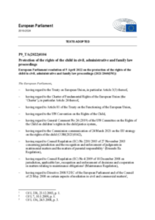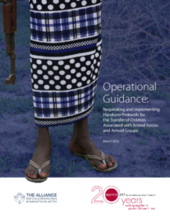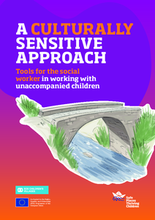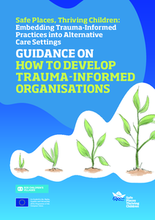Displaying 761 - 770 of 4424
The SAYes Alumni Group is hosting a series of online networking events for care experienced young people and their supporters from across the globe.
The Task Force on Foster Care of the Transforming Children's Care Global Collaborative Platform held the first spotlight webinar series on foster care practice on 7 April 2022.
The Task Force on Foster Care of the Transforming Children's Care Global Collaborative Platform is organising a spotlight webinar series on foster care practice. There will be five webinars focused on different areas of practice. This first webinar will provide an introduction to the series.
For the most part, the Ukrainian government has insisted that the nation’s children remain in Europe to ensure expeditious family reunification when the war is over. Importantly, not all children residing in Ukrainian orphanages were orphans, and many were not eligible for intercountry adoption — the majority have parents and families who placed them in orphanages for economic and medical reasons.
The European Parliament adopted this resolution on the "Protection of the Rights of the Child in Civil, Administrative and Family Law Proceedings" on April 5, 2022.
A joint endeavor of Watchlist on Children and Armed Conflict, the Alliance, and its CAAFAG Task Force, the operational guidance aims to support the signing and implementation of handover protocols. It provides child protection actors with good practices, lessons learned, and other useful information on previous and ongoing negotiations and implementation processes in various countries.
Forgotten in the calls for a “new normal” and the shuffle toward it are the millions of children around the world whose parent or guardian has died from Covid-19. Their post-pandemic lives will be anything but normal.
This resource was developed by SOS Children's Villages Belgium as an annex to the Practice Guidance. This tool provides guidance for social workers working with unaccompanied refugee and migrant children on how to use trauma-informed practices in a culturally sensitive way.
The Guidance Document was developed to support organisations taking part in the Organisational Development workshops for the project. Through the workshops, we aim to establish a trauma-informed culture in organisations that care for and support children and young adults in alternative care.
As part of the “Safe Places, Thriving Children” project, SOS Children’s Villages has developed a series of six e-learning modules which aim at increasing participants’ understanding of trauma and its effects on children and young people, and provide guidance on how to act in a more trauma-sensitive way when working with children, young people and families.




